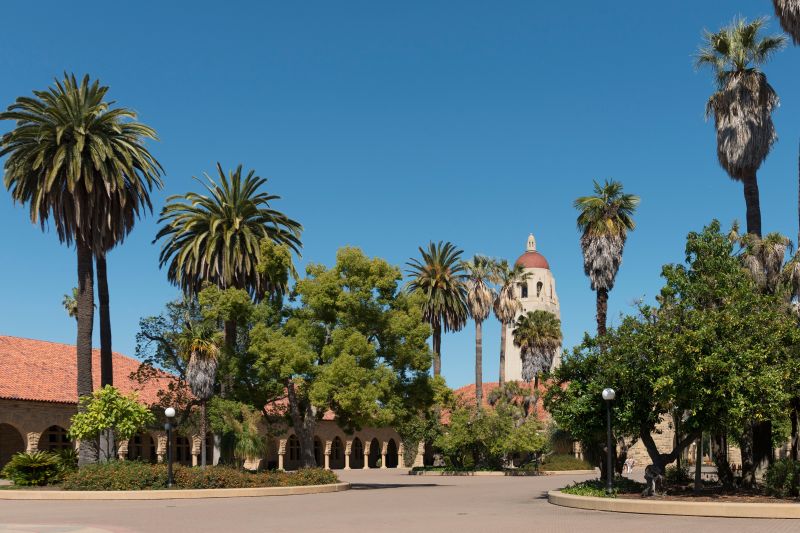Dealing predominantly with the short- and long-term impacts of the coronavirus pandemic, Stanford’s Board of Trustees convened on Monday for their fourth meeting of the academic year. The board also committed to making a decision on divestment from fossil fuels by the end of the academic year, and announced the formation of a long-term recovery team in response to the effects of COVID-19 on the University, according to board chair Jeff Raikes ’80.
In his remarks to the board, President Marc Tessier-Lavigne outlined the priorities currently guiding the University’s decisions. In accordance with the values expressed in Stanford’s mission statement, Tessier-Lavigne said, all COVID-19 response plans will “ensure continuity in our research and teaching, and ensure continued access for students, including through robust financial aid.”
Student experience
Raikes emphasized that no further decisions regarding fall quarter plans have been made at this time. Administrators are awaiting further public-health guidance, he said, and evaluating the accessibility of testing and treatment and the University’s capacity to enforce social distancing.
“I know that everyone would like to return to the way things were as soon as possible,” he said. “But the bottom line is we’ve got to step very carefully and do some very thoughtful planning with these considerations in mind.”
Vice provost for faculty development Sarah Church and vice provost for student affairs Susie Brubaker-Cole described measures meant to limit the pandemic’s impact on academics and student life.
Brubaker-Cole recognized the significant challenges facing Stanford students during the pandemic, primarily impacts on future job or academic prospects and mental health, according to Raikes.
The BEAM career education center has pivoted to online programming, and both Counseling & Psychological Services (CAPS) and Vaden Health Center now offer online mental health services, Raikes said.
Vice provost for graduate education Stacey Bent also joined the meeting to report concerns for graduate students, who face diminished opportunities for jobs and research positions in the wake of the pandemic.
In response, Stanford has extended “financial support in a number of forms,” Raikes said.
Financial planning
The board also discussed the pandemic’s blow to the University’s budget. Instead of an expected $126 million surplus, the University has instead seen a $200 million reversal in its consolidated budget. Sources for this disparity include changes to financial aid for spring quarter — the University has waived the “summer earnings expectation”— and unforeseen declines in endowment payouts.
Economic uncertainty and the lack of definitive timeline for resuming in-person operations has slowed future financial planning. The board plans on examining different possible scenarios and factors, such as the possible postponement of the academic year and current market volatility, when creating the University budget, according to Raikes.
“As Dr. Fauci said, the virus will determine the schedule,” Raikes said, adding that the board is aiming to have its budget for the 2020-21 fiscal year together before their June meeting.
Divestment
The board is working closely with both Fossil Free Stanford and the Special Committee on Investment Responsibility, Raikes said. The task force dedicated to exploring a potential divestment from fossil fuels has now held more than 20 sessions regarding a divestment proposal brought forward by Fossil Free Stanford, Raikes said. He also said that the board will make a decision on the proposal before the end of the academic year.
“As we told the Fossil Free Stanford students yesterday, the current volatility in the markets is not in any way affecting how we think about the decision we have to make,” Raikes said. “The decision we have to make is for the long term of the University — it’s not affected by near-term economic challenges.”
Stanford Medicine
Raikes praised Stanford Medicine’s efforts to combat COVID-19.
“We are incredibly proud of the work being done by our medical professionals in both patient care and research, as well as just generally how we respond to the coronavirus crisis,” he said.
Stanford Medicine developed a test for detecting COVID-19 approved by the Food and Drug Administration, and developed an antibody test to aid in better understanding the virus and the body’s response to it.
Raikes said that the board was in favor of increasing testing availability for students on campus, but said the implementation lays with University leadership.
“I think each and every one of the trustees personally supports more testing, and how that gets done at Stanford will be determined by Stanford leadership,” he said.
The board also recognized the challenges faced by research groups across the University. In particular, they noted how shelter-in-place laws have created significant difficulties due to the bans on in-person gatherings. However, the board commended research teams for their “renewed sense of purpose and responsibility based on the new challenges that the coronavirus is posing.”
Raikes praised research teams across a variety of disciplines for their work done in light of COVID-19.
Raikes also relayed the board’s condolences for the loved ones of former president Donald Kennedy, who died of COVID-19 on Tuesday, noting his “profound appreciation” for Kennedy’s contributions to the University and world at large.
Contact Max Smith at maxsmith ‘at’ stanford.edu and Grace Carroll at gac23 ‘at’ stanford.edu.
